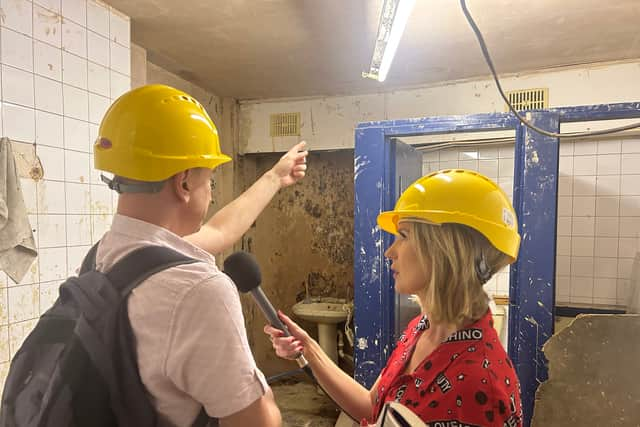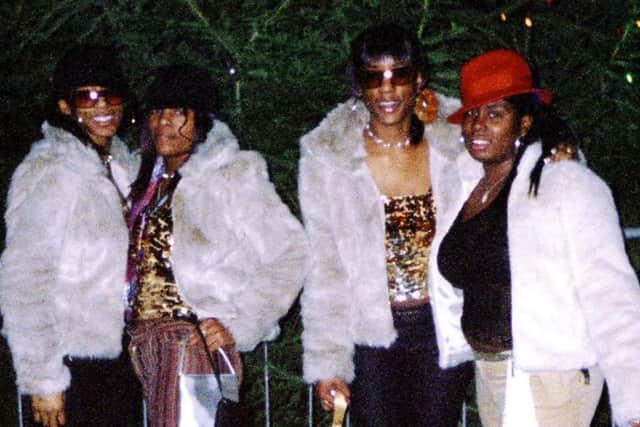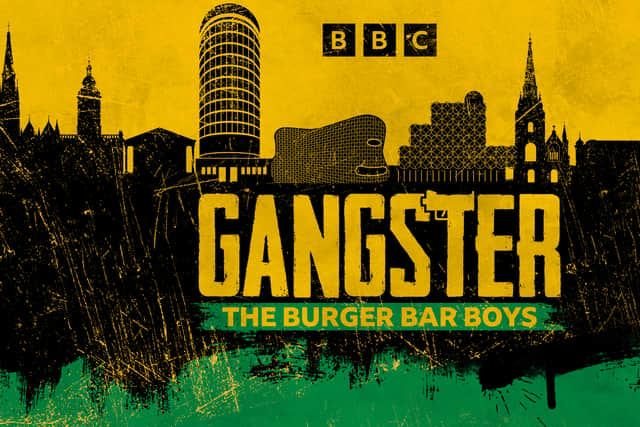‘I pretended to be a heroin addict to infiltrate the Burger Bar Boys gang in Birmingham’
and live on Freeview channel 276
Neil ‘Woody’ Woods was an undercover police officer who infiltrated the Burger Bar Boys after they shot dead two girls at a New Year’s Day party in Birmingham.
He pretended to be a heroin addict to get close to the notorious Birmingham gang who murdered Letisha Shakespeare and Charlene Ellis in 2003 - and almost got killed by the gang himself when they found in him a grotty toilet in a snooker hall where they met in secret.
Advertisement
Hide AdAdvertisement
Hide AdIn addition to murder, the gang were known to commit gang rapes in return for drug debts and ‘Woody’ has spoken out about this in a new BBC 5 Live podcast called Gangster, with a six part series, about the Burger Bar Boys.
The series also features Charlene’s sister, Sophie, who relives the horror of those notorious events in which she was also shot - telling how she still feels physical and emotional pain today.
Charlene and Sophie’s father was Arthur ‘Super D’ Ellis - the founding member of rival Birmingham gang, The Johnsons.


Four men were each convicted of murder and attempted murder at Leicester Crown Court in March 2005 - but have continued to appeal against their sentences. Sophie says the families were targeted by the Burger Bar Boys after the convictions.
Advertisement
Hide AdAdvertisement
Hide AdTwo decades later these crimes continue to shock the community. ‘Woody’, who has since retired from West Midlands Police, revisits the grotty men’s toilet of a snooker club where the gang based themselves as part of the broadcast. This is where he was violently interrogated by the Burger Bar Boys - and feared for his life.
“I’d spent many weeks trying to get a direct introduction to the Burger Bar Boys,” he says. “So I was buying heroin and crack cocaine off the sort of periphery of the network runners who worked for them, various of the dealers who worked for them.
“But I needed to get connected directly to them. So I spent a long time persuading these two people to introduce me. A guy in a hood came in the door, banged the door open, and he went into the cubicle, shook the cubicle door, stood on the toilet and leaned forward, looking over the top.


“I was aware I was on their territory. I knew there was no easy escape route. I was just ready to accept the violence to be honest .
Advertisement
Hide AdAdvertisement
Hide Ad“Four hooded figures came in and started walking around me - as I’m stood, looking up at him - these four figures are going round. And then as he starts asking me questions, every so often, one of these figures would hit me on the side of the head.
“I still remember it as feeling like I’ve been headbutted on the ear. And it came to a point where I thought, well, I’m not getting out of here in one piece. I knew the reputation of them. I’d seen the intelligence, I’d heard the way that people were talking about them on the streets. They leave people in a bloody mess all the time. So I thought that was it.
“I was completely astonished, really at just the sheer, grimy things that these people were up to, especially the sexual violence. I hadn’t really come across that before. They were sexually abusing women and men, that was part of the intelligence, they were gang raping for a drug debt.
“If I compare them with dealers that I’ve known all over the country or elsewhere, they were much darker. They were much more refined in their day to day intimidation and just moodiness and unpleasantness. They were by far the most intimidating and scary that I’ve met. Nothing even comes close, to be honest.


Advertisement
Hide AdAdvertisement
Hide AdSpeaking of her experiences, Sophie said: “The choices that they made that night, obviously I’m a living consequence of that. I woke up one day and then lost my life. I lost my twin sister. My life has never been the same. I had to learn to walk again because I was in bed for so long, I lost a lot of blood.
“So it really was a journey. It’s life changing, I still suffer with those injuries today. Some of them are lifelong injuries. I am grateful that I’m still here, but nothing can replace the fact that my twin sister is not here. So it’s life changing, very detrimental.”
Marcus Ellis, 24 (Charlene’s half-brother), Michael Gregory, 22, and Nathan Martin, 26, were jailed for a minimum of 35 years for murder and attempted murder. Rodrigo Simms, 20, was sentenced to 27 years – the lesser figure being due to his age at the time of the shooting. The trial was the first in England at which secret witnesses were allowed to be used.
In 2005, the convicted men appealed at Woolwich Crown Court but the appeal was turned down. They were also refused leave to appeal to the House of Lords. In 2012, Ellis, Martin and Simms appealed to the European Court of Human Rights that they had not received a fair trial. This appeal was also dismissed.


How can I listen to the BBC Gangster podcast about the Burger Bar Boys
Advertisement
Hide AdAdvertisement
Hide AdThe BBC podcast is presented by investigative journalist Livvy Haydock, who also interviews police officers - including Dave Mirfield - and journalists - including Amardeep Bassey - who were involved in the Burger Bar Boy investigation.
The first two episodes of the six-part BBC Five Live Gangster series are available to hear on BBC Sounds on Friday (November 3), taking listeners on a journey of guns and gangs which spans more than two decades.
You can listen to a the podcast here: BBC Gangster podcast about the Burger Bar Boys
